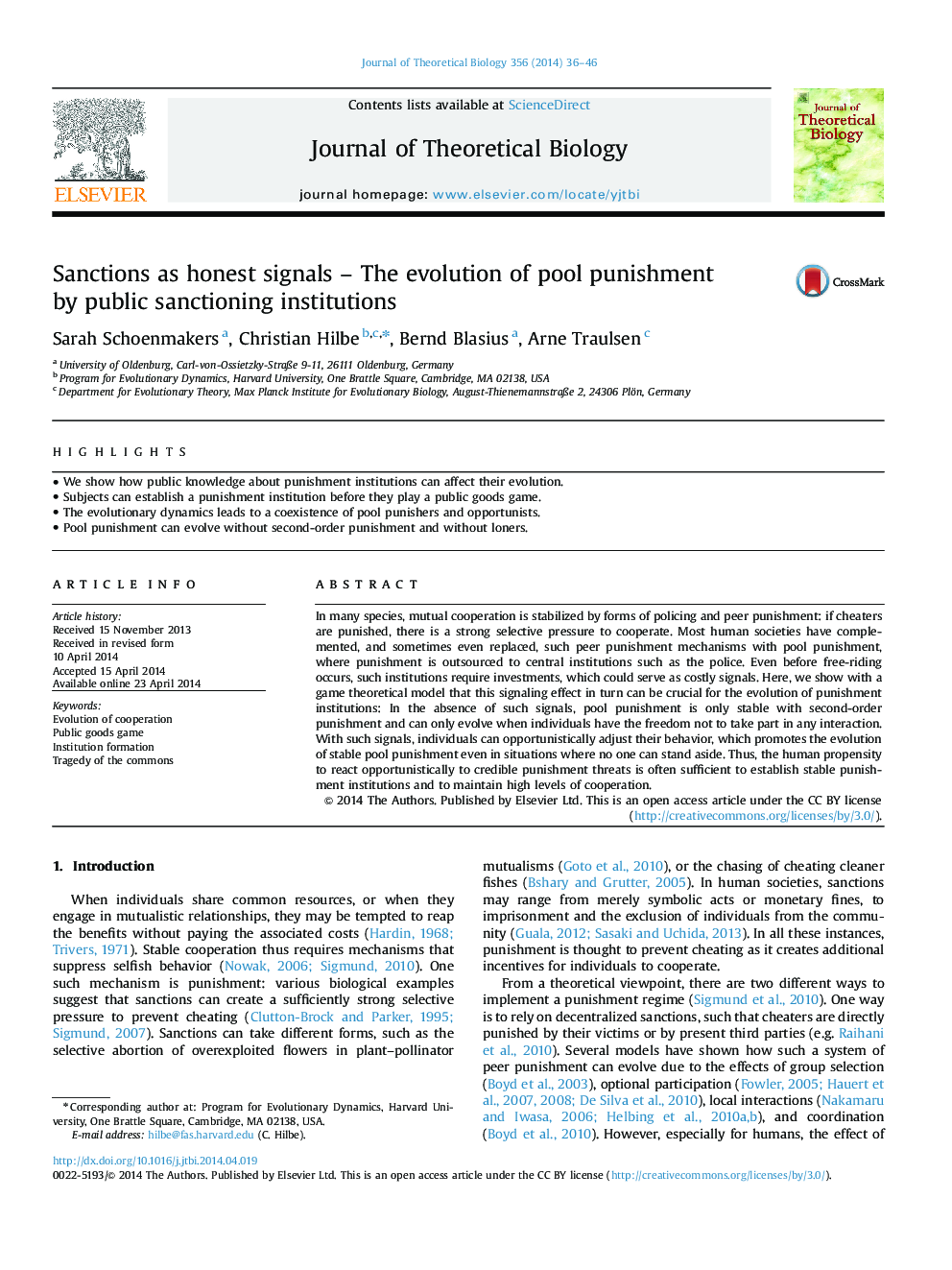| Article ID | Journal | Published Year | Pages | File Type |
|---|---|---|---|---|
| 6370404 | Journal of Theoretical Biology | 2014 | 11 Pages |
Abstract
In many species, mutual cooperation is stabilized by forms of policing and peer punishment: if cheaters are punished, there is a strong selective pressure to cooperate. Most human societies have complemented, and sometimes even replaced, such peer punishment mechanisms with pool punishment, where punishment is outsourced to central institutions such as the police. Even before free-riding occurs, such institutions require investments, which could serve as costly signals. Here, we show with a game theoretical model that this signaling effect in turn can be crucial for the evolution of punishment institutions: In the absence of such signals, pool punishment is only stable with second-order punishment and can only evolve when individuals have the freedom not to take part in any interaction. With such signals, individuals can opportunistically adjust their behavior, which promotes the evolution of stable pool punishment even in situations where no one can stand aside. Thus, the human propensity to react opportunistically to credible punishment threats is often sufficient to establish stable punishment institutions and to maintain high levels of cooperation.
Related Topics
Life Sciences
Agricultural and Biological Sciences
Agricultural and Biological Sciences (General)
Authors
Sarah Schoenmakers, Christian Hilbe, Bernd Blasius, Arne Traulsen,
